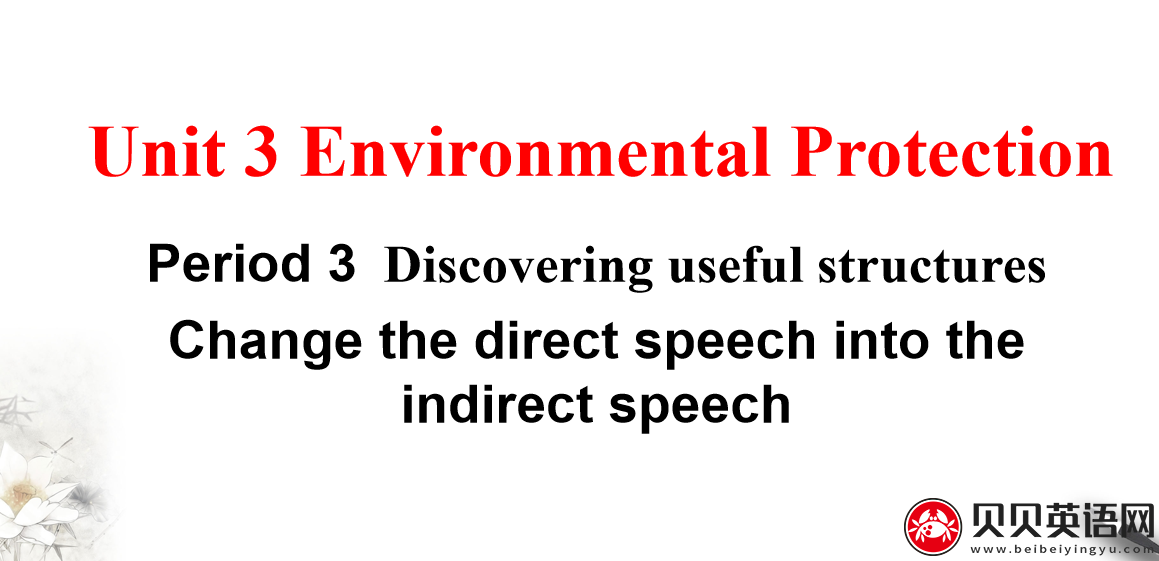欢迎访问贝贝英语网!

直接引语和间接引语
1. 基本概念
(1)直接引语:直接引述别人的话,把它放在引号内,叫直接引语。
(2)间接引语:用自己的话转述别人的话,叫间接引语。
【点拨】
直接引语变为间接引语时,从句中的人称、时态、指示代词、时间状语和地点状语等一般均要作相应的变化。
2. 人称的变化
直接引语变为间接引语时,人称的变化遵循以下原则。
(1)一随主:直接引语中出现的第一人称代词要按照引述动词的主语的人称变化。
She said,“I won’t be frustrated.” → She said that she wouldn’t be frustrated. 她说她不会沮丧的。
(2)二随宾:直接引语中出现的第二人称代词要按照引述动词的宾语的人称变化,若引述动词后没有宾语,也可用第一人称。
I told Mary,“We will protect you from infection.” → I told Mary we would protect her from infection.
我告诉玛丽我们会保护她不受感染。
(3)第三人称不更新:直接引语出现的第三人称代词一般不需要变化。
She said to me,“They want to decrease the amount of fat they eat.”
→ She told me that they wanted to decrease the amount of fat they ate.
她告诉我,他们想减少脂肪的摄入量。
(1)如果直接引语中有明确的表示过去时间的状语,变为间接引语时,时态不变。
My mother said to me,“The museum was completely transformed in 2017.”
→ My mother told me that the museum was completely transformed in 2017.
我母亲告诉我,图书馆在2017 年被彻底改造了。
(2)如果直接引语表述的是客观真理,变为间接引语时,时态不变。
The geography teacher said to us,“The earth travels around the sun.”
→ The geography teacher told us that the earth travels around the sun.
地理老师对我们说:“地球围绕太阳转。”